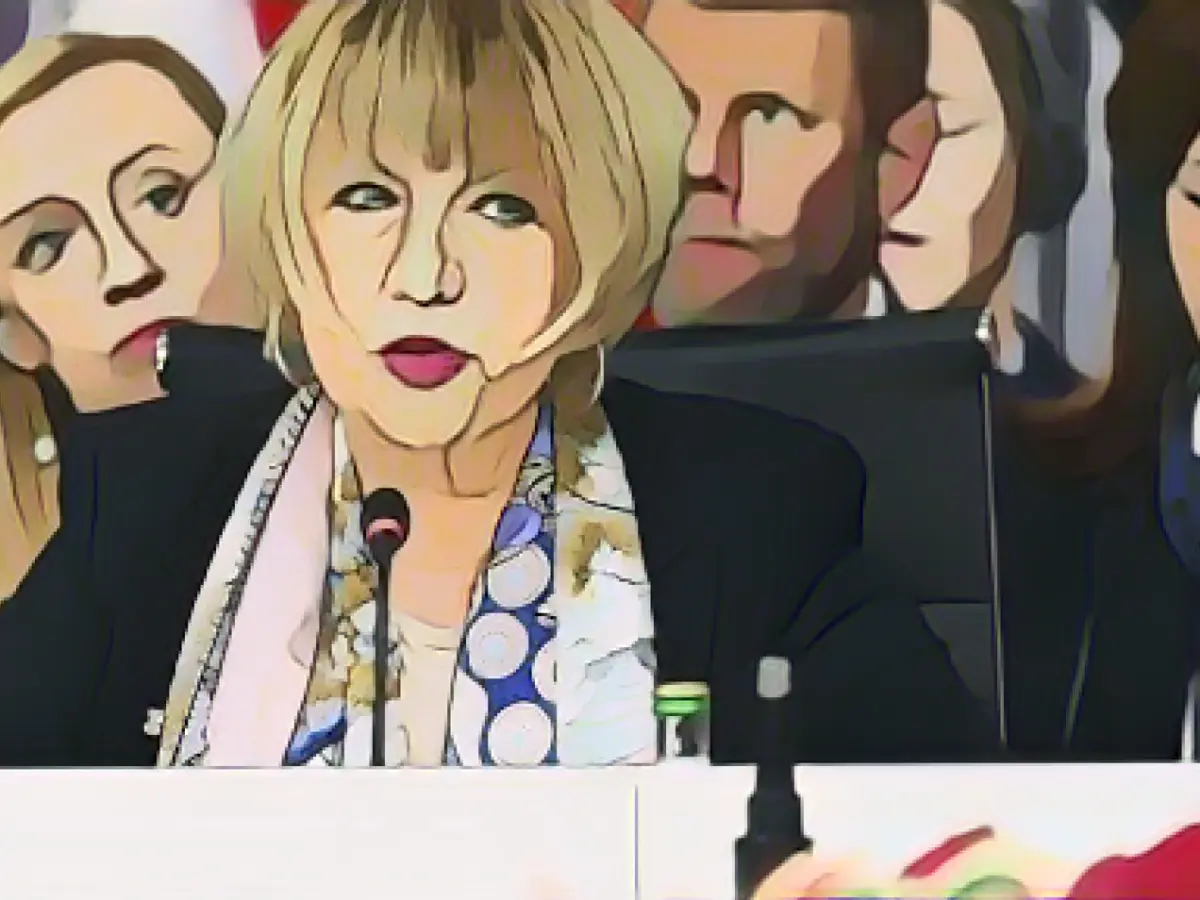Diplomacy - Compromise with Moscow: German Schmid remains OSCE chief
At the meeting of foreign ministers of the Organization for Cooperation and Security in Europe(OSCE), Russia partially prevailed with its blockade stance. At the end of the meeting in Skopje, North Macedonia, the 57 OSCE states agreed that the German diplomat Helga Schmid would continue to head the organization's secretariat in Vienna.
However,Russia only agreed to a short extension of nine months for Schmid and three other top OSCE representatives. The OSCE leadership must therefore be renegotiated by September.
Russia also prevailed on the question of who will be considered for the OSCE chairmanship next year. Moscow's representatives rejected Estonia because of its NATO membership. Finally, neutral Malta was awarded the chairmanship in a further compromise.
Russia blocks budget adoption
Russia is also continuing to block the adoption of a budget for the OSCE, which not only serves as a platform for dialog on security issues, but also runs projects to strengthen democracy and human rights.
After the ministerial meeting, the current OSCE Chairperson-in-Office and North Macedonian Foreign Minister, Bujar Osmani, nevertheless spoke of a "groundbreaking" result. Almost all 57 member states had condemned Russia's war of aggression in Ukraine in Skopje. "Our ministerial meeting has rekindled our beacon. Although there are attempts to extinguish it, it is still shining," he said. The compromises with Moscow were necessary for the OSCE to be able to continue its work, Osmani emphasized at a press conference.
Berlin sees the meeting as positive
Berlin also viewed the meeting positively. "Good news from Skopje", wrote the Foreign Office on X (formerly Twitter). With the decisions on OSCE leadership, the organization can continue to work for the security of a total of 1.3 billion people in the member states, it said. In addition to Schmid, the terms of office of the OSCE representatives for minorities, freedom of the press and democracy and human rights were extended by nine months. All four were appointed for three years in December 2020.
The meeting was attended by German Foreign Minister Annalena Baerbock and Russia's chief diplomat Sergey Lavrov, among others. Lavrov used the conference to blame the West for the OSCE crisis and criticize Western counterparts. US Secretary of State Antony Blinken and EU High Representative for Foreign Affairs Josep Borrell had already left, Lavrov said at his own press conference. "They probably believe that this underlines their intention to isolate Russia. But I think they are simply cowards, they are afraid of any honest conversation with facts," he said.
Since the beginning of the war in Ukraine, there have been calls within the OSCE for Russia to be excluded. However, many members, including Western states, are not in favor of this step. However, the remaining members are not in agreement about such a step, said Osmani. "Some countries are concerned that the OSCE was created as a platform for dialog with other countries with which they disagree," he said.
Lesen Sie auch:
- Pioneer at the Supreme Court - Sandra Day O'Connor died
- Another restructuring expert takes over important Signa position
- Despite Russia's blockade stance partially prevailing at the OSCE meeting in Skopje, North Macedonia, the organization agreed to extend Helga Schmid's term as OSCE secretary-general in Vienna.
- Russia only granted a nine-month extension for Schmid and three other top OSCE representatives, necessitating a renegotiation of the OSCE leadership by September.
- Russia opposed Estonia's consideration for the OSCE chairmanship due to its NATO membership, ultimately resulting in neutral Malta being awarded the chairmanship in a compromise.
- Russia has been continuing to block the adoption of a budget for the OSCE, impacting its ability to address security issues and promote democracy and human rights.
- Following the ministerial meeting in Skopje, North Macedonia's Foreign Minister Bujar Osmani described the results as "groundbreaking," with most member states condemning Russia's war in Ukraine.
- Germany's Annalena Baerbock and Russia's Sergey Lavrov attended the meeting, with Lavrov criticizing the West for the OSCE crisis and blaming Western counterparts for isolating Russia.
- While some members within the OSCE have called for Russia to be excluded due to its actions in Ukraine, many members, including Western states, are against this step.
- Osmani noted that some countries believe that the OSCE was created as a platform for dialogue with countries with which they disagree, highlighting the divisive nature of the organization's current situation.
- At a press conference, Osmani emphasized that compromises with Moscow were necessary for the OSCE to continue its work, acknowledging the challenges faced in maintaining diplomatic ties with Russia.
- In addition to Schmid, extended terms were also granted to the OSCE representatives for minorities, freedom of the press, and democracy and human rights, ensuring continuity within the organization.
- The decisions made at the meeting will allow the OSCE to continue working towards the security of its 1.3 billion member states, emphasizing the importance of diplomacy and compromise in addressing global conflicts.
Source: www.stern.de








